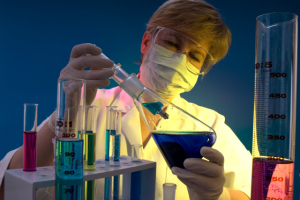by
Heather Mayer, DOTmed News Reporter | June 15, 2010

Influencing research through synthetic
biology raises ethical concerns
As the field of synthetic biology becomes more advanced, concerns arise when it comes to the ethics and morals of creating or manipulating nature. Most recently, the J. Craig Venter Institute (JCVI) announced its success in creating the first self-replicating cell controlled by a synthetic genome. The synthetic cell is called mycoplasma mycoides JCVI-syn1.0.
Scientists try to be cautious when it comes to crossing the line between nature and research, but ultimately they point out the benefits of science.
"It is important for the public to understand the science and the risk and benefits that it brings," said the paper's lead researcher, Daniel Gibson, in an e-mail interview with DOTmed News. "We believe the benefits of this new technology are increasing exponentially and the risks are only increasing linearly."




Ad Statistics
Times Displayed: 39599
Times Visited: 1075 Stay up to date with the latest training to fix, troubleshoot, and maintain your critical care devices. GE HealthCare offers multiple training formats to empower teams and expand knowledge, saving you time and money
Synthetic biology, explained Gibson, gives scientists the ability to produce cells with properties that do not exist naturally, which is crucial for research. But Gibson and scientists in the field of synthetic biology don't necessarily create something from nothing.
"Most new science and medical advances have been described as 'playing god,' he said. "We are not creating life from scratch. We are creating synthetic cells from already existing life to create new cells that have properties dictated by the synthetic genome that we design."
These efforts advance science further, with potential to help meet societal demands, including energy, antibiotics and clean water, he said.
And while there is huge potential in the field, the niche of genomics has barely been tapped, said George Church, professor of genetics at Harvard Medical School and professor of health sciences and technology at Harvard and Massachusetts Institute of Technology (MIT).
"There is not a single example of something so far that requires complete synthesis [of a genome]," he told DOTmed News. "That's not to say there won't be."
And he said almost everything done so far in terms of synthetic biology has been done without the use of an entire genome. But even having the ability to change only 30 genes out of 40,000 can raise concerns when it comes to safety because it opens the door to misusing synthetic biology engineering.
"That's the tension about the autonomy -- allowing people to do this kind of research versus the concern of some that unregulated experiments may have unanticipated consequences," said Ed McCabe, physician-in-chief at Mattel Children's Hospital at UCLA.
The main concerns arise not over "playing god" or becoming an unethical person because there is access to synthetic biology, but primarily bioterrorism risks or letting the technology fall into the wrong, inexperienced hands.

